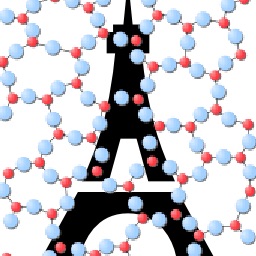The Physics of AmoRphous and Inorganic Solids Laboratory (PARISlab) and Laboratory for the Chemistry of Construction Materials (LC2) at University of California, Los Angeles (UCLA) are seeking some outstanding candidates for several open postdoctoral positions starting in Summer or Fall 2019. Special emphasis is placed on recruiting candidates with a Ph.D. in materials science, civil engineering, mechanical engineering, computer science, or related fields. Focus is placed on candidates with a demonstrated expertise in machine learning and materials informatics.
Open positions:
The successful candidates will work on applying artificial intelligence and machine learning techniques to accelerate the design of novel concrete formulations with enhanced properties, lower cost, and/or lower carbon footprint. Methods of interest include: (i) regression techniques for concrete property prediction (gaussian process regression, artificial neural network, random forest, etc.), and (ii) optimization methods to pinpoint optimal concrete mixtures (Bayesian optimization, swarm optimization, etc.), (iii) algorithms for data cleansing, outlier identification, etc., (iv) identification of relevant fingerprints/descriptors, and (iv) classification methods. The developed machine learning models will be informed by (i) the physics and chemistry governing the behavior of complex materials and (ii) multi-scale simulations (from atomic to continuum scale).
The candidate will work in the group of Profs. Bauchy and Sant at UCLA, in strong collaboration with other computational students/postdocs in PARISlab and experimental students/postdocs/faculty in LC2. More information can be found at: http://www.lab-paris.com and http://www.lcc-ucla.com.
Required qualifications:
For consideration, applicants should possess the following qualifications or attributes:
- A Ph.D. degree from a reputable university in a topic of relevance (see above),
- An interest in pursuing a research career,
- Some experience in materials informatics/machine learning demonstrated by a strong publication record,
- A strong interest in programming and computational approaches,
- An ability to work in an interdisciplinary team,
- An interest in working in a fast-paced research environment.
Applicants with relevant experience will be given special preference. The successful candidates will be expected to take personal initiative to structure tasks to meet project functions and author high-impact publications. The candidate will also be expected to mentor students, teach courses in relation to expertise (if opportunity arises), fulfill project administration functions, prepare research reports, and assist in proposal development. The candidate is expected to meet programmed project goals and can respond to deliverable timelines as are typical in “academia-industry” collaborative research. All positions are programmed for a 1-year duration but can be extended by mutual agreement.
How to apply:
If you meet the above requirements and are interested in this position, please provide by email (bauchy@ucla.edu) a detailed resume, a short personal statement explaining your scientific and research interests, and contact information for three referees in support of your application (as PDF files). Recruitment will remain open until the positions are filled.
Contact:
Prof. Mathieu Bauchy — bauchy@ucla.edu
Physics of AmoRphous and Inorganic Solids Laboratory (PARISlab)
Department of Civil and Environmental Engineering
University of California, Los Angeles
420 Westwood Plaza, 5731E Boelter Hall, Los Angeles, CA 90095, USA
http://www.lab-paris.com

